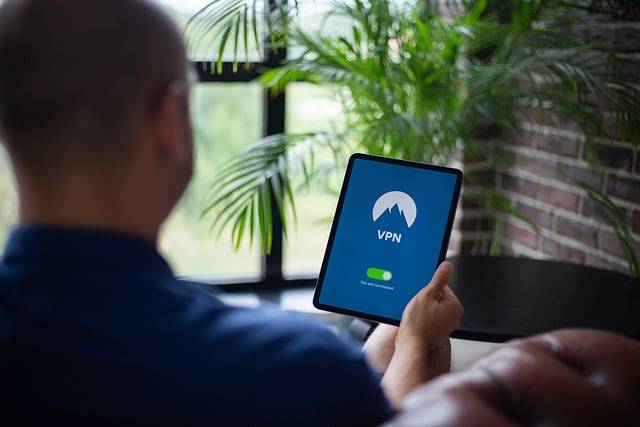In today’s digital age, it is essential to protect your online privacy. With the rise of virtual private networks (VPNs), many users are turning to these services for added security and anonymity when browsing the web. But can Internet Service Providers (ISPs) track VPN usage?
In this blog article, we will uncover the truth about ISP tracking of VPNs and what you need to know in order to keep your data secure. We will also examine how ISPs monitor VPN connections and explore ways that you can protect your digital footprint from unwanted surveillance.
Table of contents: Can ISPs Track VPN
- Uncovering the Truth: Can ISPs Track VPN Usage?
- Is Your Online Privacy at Risk? Investigating ISP Tracking of VPNs
- What You Need to Know About How ISPs Monitor VPN Connections
- Keeping Your Data Secure: Understanding ISP Tracking of Virtual Private Networks
- Protecting Your Digital Footprint: Examining the Impact of ISP Tracking on VPNs
The use of Virtual Private Networks (VPNs) is becoming increasingly popular as people strive to protect their online privacy and security. One of the main advantages of using a VPN is that it can help you remain anonymous while browsing the internet, as your IP address will be hidden from view. But one question many users have is whether or not Internet Service Providers (ISPs) are able to track VPN usage.
To answer this question, it’s important to understand how ISPs work in relation to data transmission over the internet. When you connect to an ISP, they assign you an IP address that allows them access to your computer so they can monitor and manage your connection speed and bandwidth usage. This means that when you visit websites or download files, ISPs can see what type of activity you’re engaging in on their network – even if it’s encrypted with a VPN service provider like ExpressVPN or NordVPN.
However, there are certain measures that ISPs take which make tracking VPN traffic more difficult for them than regular web traffic:
1) Encryption: Most reputable VPN services use strong encryption protocols such as OpenVPN or IPSec, which makes it harder for ISPs to decipher what kind of data is being transmitted over their networks;
2) Tunneling Protocols: Some providers also employ tunneling protocols such as PPTP and L2TP/IPsec, which further obfuscate user activities by creating multiple layers within each packet sent across the network;
3) Split Tunnelling: This technique helps prevent all data from passing through a single tunnel by allowing users to select specific applications they want to be routed through their private network while other apps continue running normally without any encryption applied;
4) Multi-Hop Connections: By connecting via two different servers instead of just one, multi-hop connections add another layer between user devices and ISP networks, making tracking much more difficult.
Uncovering the Truth: Can ISPs Track VPN Usage?
The use of Virtual Private Networks (VPNs) is becoming increasingly popular as a way to protect online privacy and anonymity. But can Internet Service Providers (ISPs) track VPN usage? This question has been the subject of much debate, with some claiming that ISPs are able to detect when users are using a VPN, while others argue that this is impossible.
In order to uncover the truth about whether or not ISPs can track VPN usage, it’s important to understand how they work and what kind of data they collect from their customers. In general, an ISP collects information such as IP addresses and browsing history in order to provide services like internet access or television streaming services.
However, when a user connects through a VPN service provider instead of directly through an ISP’s network connection point-of-presence (POP), then all traffic appears as if it were coming from the same source – making it difficult for ISPs to differentiate between different types of traffic on their networks.
It’s also worth noting that many modern-day encryption protocols used by most reputable VPN providers make it virtually impossible for anyone outside your own computer system – including your ISP -to decrypt any data you send over the internet while connected via one of these protocols.
As such, even if your ISP were able to detect when you’re using a particular type of encrypted protocol designed specifically for use with virtual private networks – which would be extremely difficult given current technology – they still wouldn’t be able to decipher any content sent over those connections without having access keys stored on either endpoint involved in each session; something which only you have control over due security measures implemented by most reputable providers today.
In conclusion: While there may be certain cases where ISPs could potentially identify when someone is connecting via a virtual private network service provider rather than directly through them; this requires highly advanced technical knowledge combined with specific resources available only within certain jurisdictions around the world – making tracking individual users’ activities almost completely unfeasible in practice today.
Is Your Online Privacy at Risk? Investigating ISP Tracking of VPNs
As the internet has become an integral part of our lives, online privacy is a major concern. With more and more data being shared over the web, it’s important to understand how your information is being tracked and protected. One way to protect yourself from potential threats is by using a Virtual Private Network (VPN). But can Internet Service Providers (ISPs) track VPNs?
The short answer is yes – ISPs can track VPNs. While most reputable VPN services take measures to prevent this from happening, there are still ways for ISPs to monitor traffic that passes through their networks. This means that if you’re using a public or free VPN service, your data could be vulnerable to tracking by your ISP.
Fortunately, there are steps you can take to ensure that your online privacy remains intact when using a VPN service:
• Choose a reliable provider with strong encryption protocols such as OpenVPN or WireGuard;
• Make sure the provider offers no-logging policies;
• Use split tunneling, so only certain apps use the encrypted connection; and
• Utilize additional security features like two-factor authentication or kill switches for extra protection against malicious actors trying to access your data.
By taking these precautions and understanding how ISPs track traffic on their networks, you’ll be better equipped to protect yourself against any potential risks associated with online activity – including those posed by ISP tracking of VPNs!
What You Need to Know About How ISPs Monitor VPN Connections
When it comes to online privacy, one of the most important questions is whether or not your Internet Service Provider (ISP) can track your VPN connections. The short answer is yes, they can. However, there are a few things you should know about how ISPs monitor VPN connections and what measures you can take to protect yourself from potential snooping by your ISP.
First off, it’s important to understand that when you connect through a virtual private network (VPN), all of your internet traffic is encrypted and routed through an external server before reaching its destination. This means that while the data itself may be secure from prying eyes on the public internet, ISPs still have access to information such as which websites you visit and how much bandwidth you use during each session.
In addition to this basic level of monitoring, some ISPs also employ deep packet inspection techniques in order to gain further insight into their customers’ online activities. Deep packet inspection involves analyzing packets sent over the network for specific characteristics in order to identify certain types of traffic or applications being used by users on their networks – including those using a VPN connection.
The good news is that there are several steps users can take in order to ensure their privacy remains intact even if their ISP does decide to engage in deep packet inspection practices:
1) Choose a reputable VPN provider with strong encryption protocols;
2) Use obfuscation tools such as TorGuard Stealth Mode;
3) Utilize multi-hop technology for added security;
4) Consider using an additional layer of protection like DNS leak protection or IP address masking software;
5) Regularly check for any signs of suspicious activity on your devices connected via VPN – e..g unusual spikes in data usage etc.;
6 ) Make sure all updates are applied promptly so vulnerabilities don’t get exploited by malicious actors looking for ways around security measures put into place by providers like yours truly!
Ultimately understanding how ISPs monitor VPN connections will help keep users safe while browsing online without sacrificing performance or speed too drastically either!
Keeping Your Data Secure: Understanding ISP Tracking of Virtual Private Networks
When it comes to keeping your data secure, understanding how ISP tracking of Virtual Private Networks (VPNs) works is essential. VPNs are a great way to protect your online activity and personal information from prying eyes, but ISPs can still track their use of them.
ISPs can detect when you’re using a VPN by looking at the traffic that passes through their network. They may be able to tell if you’re using an encrypted connection or not, as well as what type of encryption is being used. This means they can determine whether or not someone is using a VPN service and even which one they are using.
Fortunately, there are ways to prevent ISPs from tracking your usage of a VPN service, such as obfuscation technology and other methods like split tunneling that help hide the fact that you’re connected via a virtual private network.
Obfuscation technology scrambles packets so they look like regular web traffic rather than encrypted data passing through an ISP’s servers, while split tunneling allows users to choose which apps will go through the secure connection provided by their chosen provider instead of all internet traffic going over it automatically.
Protecting Your Digital Footprint: Examining the Impact of ISP Tracking on VPNs
As the digital world continues to evolve, it is important for users to be aware of how their online activities are being tracked and monitored. ISPs (Internet Service Providers) have long been known to track user activity on their networks, but with the rise of VPNs (Virtual Private Networks), this activity has become increasingly difficult to monitor.
In this article, we will examine the impact that ISP tracking can have on VPNs and discuss ways in which users can protect their digital footprint from unwanted surveillance.
ISPs typically use a variety of methods when tracking user data, such as IP address logging, deep packet inspection, and DNS hijacking. These techniques allow them to keep tabs on what websites you visit, who you communicate with online, and even what type of content you view or download. While these practices may seem intrusive at first glance, they are actually necessary for ISPs in order to provide quality service levels across their network infrastructure; however, they do pose a threat when it comes to protecting your privacy online.
Fortunately, there are measures that can be taken by users in order to reduce or eliminate ISP tracking altogether – one such measure is using a reliable VPN service provider which encrypts all traffic passing through its servers, making it virtually impossible for an ISP or other third-party entity from monitoring your activities online without permission from the user themselves.
Additionally, many providers offer additional features such as IP masking, which further enhances security by hiding your real IP address behind another one provided by the provider itself, thus making it much more difficult for anyone else besides yourself to access any information about you while browsing/downloading files, etc…
In conclusion, while ISPs still possess certain capabilities when it comes to monitoring user data, utilizing a reputable VPN service provides extra layer protection against unwanted surveillance allowing users peace of mind knowing that all sensitive information remains secure regardless of where they go online. For this, we recommend PureVPN.








